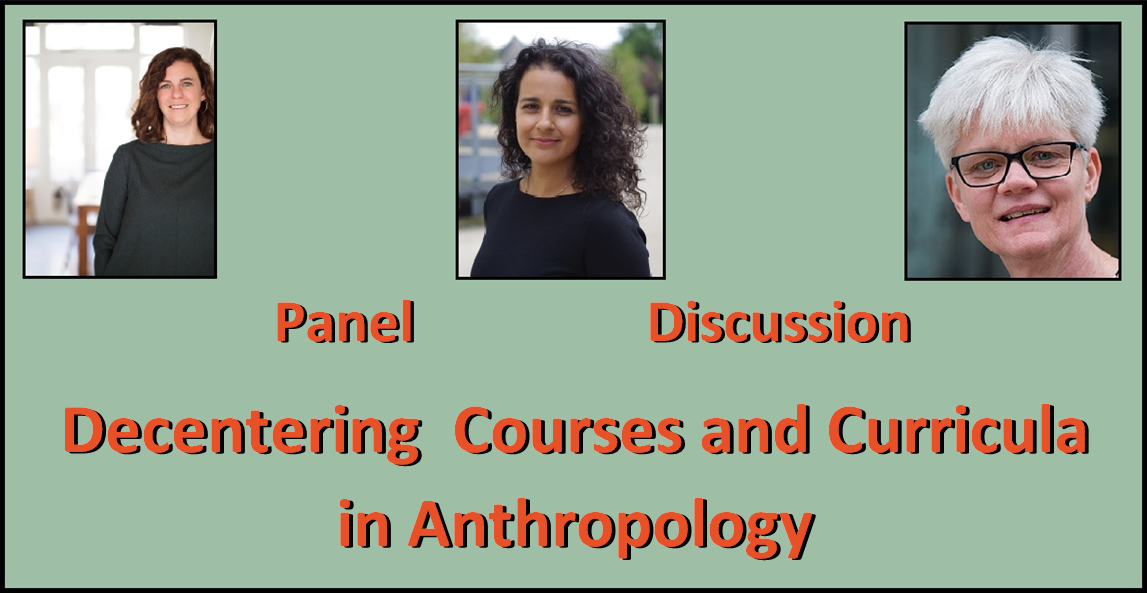 Decentering Courses and Curricula in Anthropology
Decentering Courses and Curricula in Anthropology
02:10 PM – 03:40 PM
Paviljoenzaal
In courses anthropologists offer their students, Western intellectual traditions still predominate. Whether we teach on ‘the’ canon, on a specific topic or on regions, ethnocentric bias and colonial heritage continue to play their part in our curricula. How can we teach on the history of social theories without repeating the Dead White Male Gallery? How can we offer a course on religion without the traps of Judeo-Christian biases? How can we teach on Africa beyond the outsiders’ gaze?
In our teaching we have to continue to break down dominant divides between knowers and known, subjects and objects, us and them, here and there and replace it by teaching practices in which multiple voices and gazes are center stage and connected.
This panel discusses ways of decentering anthropology courses. Starting from concrete examples of how panelists are working towards multi-centering of sources of knowledge, perspectives on anthropological topics, and regional foci we will try to anthropologize our teaching. Similar to the current developments in research practices, we want to try and trace dispersed and decentered webs of located knowledges.
Speakers
Decentering Social Theories: From Dead White Males to Lively Intersections of Learning, by Sabine Luning, Leiden University
For years, I have taught the first year’s BA course Social Theories at the Institute of Cultural Anthropology and Development Sociology of Leiden University. A course, I have to admit, with a strong Eurocentric bias (starting with Enlightenment Thinking), and disproportionate attention for dead white males (e.g. Marx, Durkheim, Weber, Bourdieu, Foucault). The coming academic year provides the opportunity to completely re-design the course, since it will be taught for first year students of the Institute of Anthropology as well as Education and Child Studies. In the presentation, I will outline how I want to seize this opportunity to radically decenter perspectives on (learning) subjects and socialities. Taking cross-cultural learning and childrearing practices as starting point, the course wants to move beyond European provincialism towards ‘worlding’, and give attention to intersectionality in identity-politics and processes of world-making.
Anthropology Curriculum at the UvA: towards a more inclusive, diverse approach, by Julie McBrien, University of Amsterdam
Over the last several years, there has been an all too late realization that our department is not as inclusive and diverse as it needs to be. I have had the good fortune of working with students, support staff, and teachers concerned with changing this situation, including in the curriculum. During this panel I will discuss two curriculum related efforts that we have recently undertaken. One was a self-review of our mandatory courses, undertaken to gain a better sense of which authors were being read by our undergraduates. The second is the alteration of our mandatory undergraduate Theory and History of Anthropology course. During the panel I will discuss how these projects arose, how they were carried out and received, what effect they have had so far, and how we plan to continue from here.
This panel will be moderated by Jasmijn Rana (Leiden University).
